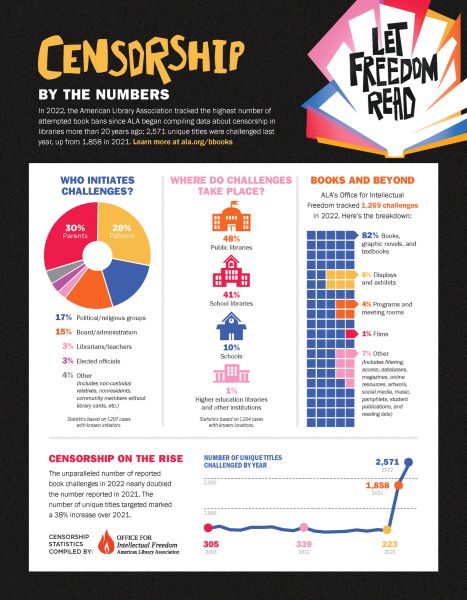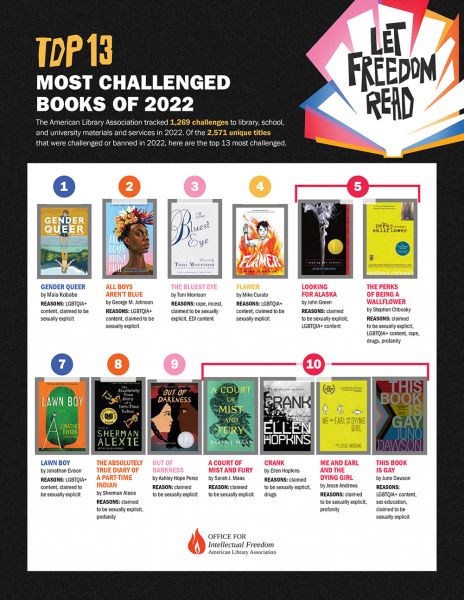Banned Books Week is here, and we’ve got you covered. This year, Banned Books Week runs from October 1st through the 7th. The week started in 1982 after a jump in the number of challenges to books in libraries, bookstores, and schools. The annual event is to highlight the value of free and open access to information, to bring the book community together, and to support the freedom to look for and express ideas.
Need to know about Banned Books Week
This year, the honorary chair is the legendary Levar Burton, and this year’s theme is Let Freedom Read. According to the American Library Association, “When we ban books, we’re closing off readers to people, places, and perspectives. But when we stand up for stories, we unleash the power that lies inside every book. We liberate the array of voices that need to be heard and the scenes that need to be seen. Let freedom read!”
Let Freedom Read Day
As part of Banned Books Week, the American Library Association is asking everyone to participate in Let Freedom Read Day. On October 7, 2023, they’re asking everyone to take at least one action to help defend books from censorship. It’s also to take a stand, and to support library staff, educators, writers, publishers, and booksellers. To take part, there are many things that you can do to help including:
- Checking out or buying a banned book.
- Call a decision maker and ask them to support the right to read.
- Attend a meeting at your library, local board, or local committee.
- Volunteer at your local library.
- Support or organize a fundraiser for your library.
- Support your local, independent bookstores.
The ALA would also love it if you shared how you took action on social media. you can use the hashtags #LetFreedomReadDay and #BannedBooksWeek And just a reminder: “Censorship won’t stop just because Banned Books Week does — you can take action any day of the year!” Get a more in-depth look at specific things you can do HERE.


Looking for some banned book suggestions? Here are 7 of my favorites.


